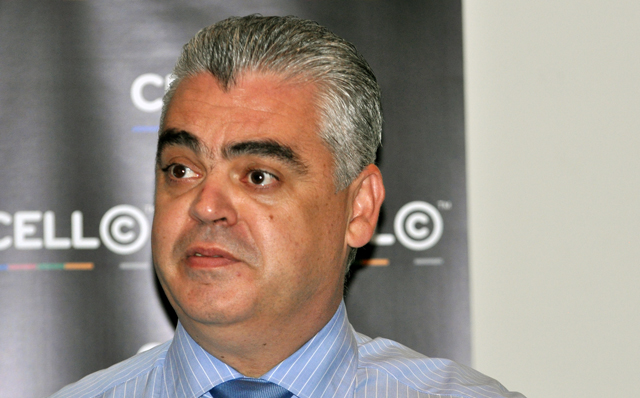
Cell C intends listing on the JSE within the next few years to unlock value for shareholders and staff. This comes in the wake of news this week that Blue Label Telecoms has tabled an offer to acquire a 35% stake in South Africa’s third mobile operator for R4bn.
The proposed acquisition forms part of a significant restructuring at Cell C, which will result in the company’s debt being reduced by more than half and all employees being given a stake in the business.
Blue Label intends using a mix of cash and new debt to pay for the stake. Although the R4bn injection implies a valuation of Cell C of just R11,4bn — far less than the R22bn parent Oger Telecom was reportedly seeking from Telkom — a spokesman for the operator said the figure represents Blue Label’s share of the equity value in Cell C and does not include the debt value. The restructuring plan has placed an enterprise value on the business of approximately R19bn.
Current controlling shareholder Oger Telecom has promised to inject fresh capital, to the tune of many billions of rand, while at the same time reducing its stake from 75% to roughly 27%. Black empowerment partner CellSAf will also see its stake diluted, from 25% to 9%. It is understood that CellSAf is not contributing any fresh capital under the restructuring plan.
Cell C’s crippling debt has long been a noose around the operator’s neck, and is believed to have been a pivotal factor in a number of suitors, including South Africa’s Telkom and Sweden’s TeliaSoneria, walking away after having had a look at the company’s books.
Cell C’s debt will be cut to between R6bn and R8bn after the proposed restructuring. Perhaps more significantly, all of the debt will be converted to rand — today, 90% of it is denominated in dollars and euros, so when the rand collapses, as it did this week, the more burden it places on the company’s balance sheet.
Cell C CEO Jose Dos Santos, who will stay on in his position for at least the next five years as part of the restructuring agreement, said that despite the company’s high levels of debt, the company has never defaulted on any of its debt repayments.
In recent years, the company’s prospects have improved markedly — under the leadership of Dos Santos and his predecessor, Alan Knott-Craig, Cell C has grown its market share (measured by Sim cards) from 9% to 22%, mainly by targeting the price-sensitive prepaid segment with aggressive tariff plans. The company is also operationally profitable.
Management is hoping a plan to include staff in the restructuring will incentivise them and help the company make further inroads against its two main rivals, Vodacom and MTN. In terms of the restructuring, Cell C staff will acquire 30% of the company for R2,5bn. The company will raise the money on behalf of employees through new debt — which will form part of the R6bn to R8bn debt target agreed to — with the loan to be paid back through dividend flows over a period of years.

Blue Label co-CEO Mark Levy said the plan to reduce Cell C’s debt to below R8bn “makes it an interesting business to be part of”.
But analysts worry about the impact the deal could have on Blue Label’s relations with Vodacom and MTN.
Levy has played down these fears, saying “co-opetition” (competing while co-operating) is commonplace. Blue Label has “no intention of breaching the contracts” it has with the other operators “or breaking these relationships that we have developed for so many years”.
Irnest Kaplan of Kaplan Equity Analysts is not so sure. “While the deal may look exciting, I think the key question is whether it will negatively affect Blue Label’s relationship with Vodacom as a customer,” he said.
Other analysts feel that it would have made more sense for Cell C to be sold to Telkom. “The ideal match-up for Cell C was a deal with Telkom for many tangible reasons that would have benefited the country as a whole,” said BMI-TechKnowledge MD Denis Smit. “This deal is basically a refinancing proposal that will significantly improve Cell C’s balance sheet.”
However, Smit said the fact that there will be a significant investment by the staff is “very noteworthy and it shows management’s faith in the enterprise”.
“We think this will also assist Cell C to participate more [meaningfully] in future spectrum auctions based on the stronger balance sheet. This can only be good for the company.”
Dos Santos said binding offers will be submitted to the boards of both Cell C and its immediate parent, 3C Telecommunications, within the next 14 days.
He said he does not expect the deal to face any regulatory hurdles and added that the company will continue to meet black empowerment shareholder requirements after the transaction, despite the dilution of CellSAf’s stake.
- This article was first published in the Sunday Times




